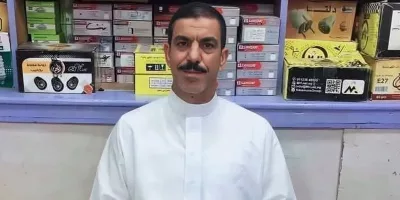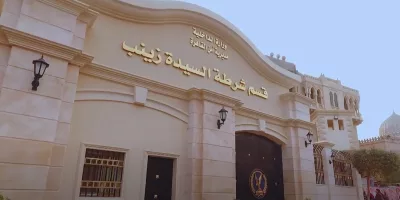On the sidelines of the 52nd regular session of the Human Rights Council, CFJ director says Egypt denies torture at the UN not just domestically
In a side event in conjunction with the 52nd regular session of the United Nations Human Rights Council, a group comprising a number of human rights organizations, including the Committee for Justice, held a symposium on 22 March on the prevalence of torture in Egypt and the lack of accountability for torture crimes
The symposium was held from 14:00 to 15:00 CET, in Room XXII, Palais des Nations, Geneva.
The policy of denial, neglect and punishment:
In his speech at the opening of the symposium, Ahmed Mefreh, Executive Director of the Committee for Justice, said that Egyptian authorities follow a policy of denial, neglect and punishment with regards to torture in custody, which has led to the impunity of officials from police, intelligence services and the Egyptian army.
Mefreh cited two cases, the first was the torture of a number of civilian detainees in Dar Al Salam Police Station, revealed by the the Guardian newspaper in 2022.
“Unfortunately, in their investigation into that heinous crime that occurred against civilians who were charged with non-political (criminal) charges, authorities completely ignored the crime, punished and investigated the victims for allegedly spreading false rumors, and imprisoned them simply because they called for help.”
Likewise, the second case, that of the economic researcher and member of the Reform and Development Party, Ayman Hadhoud, who was tortured to death in custody.
Mefreh pointed out that although this case is a public opinion case for a person known for his political affiliation, the Egyptian investigation authorities denied the incident, and alleged that the victim died naturally, and that there were no signs of torture on his body, although the pictures that appeared of his body made it very clear that there was heinous torture committed against him.
Mefreh indicated that the Egyptian authorities have also denied the torture incidents before the United Nations, which was evident during the Egypt review before the United Nations Human Rights Committee earlier this month, in which the representative of the Egyptian Public Prosecution denied the existence of any incidents of torture in Egypt, and that all incidents are being investigated.
At the end of his speech, Mefreh stressed that the policy of denial, lack of serious investigation, and impunity has resulted in a systematic policy of torture by the Egyptian authorities during the year 2022. He also called on the Egyptian authorities to amend their behavior and ensure justice for the victims.
Torture is the state’s logic of control:
Allison McManus, managing director of the Freedom Initiative, mentioned three cases of prisoners to demonstrate the spread of torture in Egypt. First, the case of Dr. Seif Fatin, a father of seven children, and a professor of environmental engineering who trained at the Massachusetts Institute of Technology. On November 13, 2018, police raided his house, covered his head with a hood and took him to the basement of a National Security facility, where he spent 265 days blindfolded, not allowed any contact with his lawyer or family, and during interrogation he was subjected to electric shocks.
Likewise, the case of Dr. Mohamed Amasha, a veterinarian, environmental activist, and advocate for the forcibly disappeared, who was imprisoned several times in retaliation for his human rights activities.
During his last arrest in 2020, he disappeared for 25 days, was sexually assaulted and subjected to electric shocks in his genitals, and officers threatened to rape his wife in front of him, until he finally made a forced confession.
Also the case of Abd al-Rahman al-Shuweikh (30 years old). In April 2021, he smuggled a letter to his mother stating that he had been tortured by prison officers, and they sexually assaulted him in several ways. This is because his mother submitted a complaint to the Public Prosecutor and published her son’s story on Facebook, and all family members were arrested. Al-Shuweikh continues to be brutally treated in prison. Recently, he was stripped of his clothes, and his mother is still in prison.
McManus explained that she shares these stories to clarify several points necessary to understand the nature of torture in Egypt today, the first of which is that torture is structural and part of the state’s logic to control the civilian population. Secondly, that torture is systematic, particularly during periods of enforced disappearance almost without exception; thirdly, that NSA officers are often responsible for directing or supervising an act of torture, and lastly for more than 30 years, there has been no real accountability for acts of torture in Egypt.
Systematic impunity:
Grant Shubin, legal advisor at Dignity, said that torture is not only structural and systematic in Egypt, but impunity is also systemic and systematic, as illustrated by the case of Giulio Regeni who was kidnapped, tortured and killed in late January or early February 2016.
Shubin added that there was a short period of joint investigation between the Italian and Egyptian authorities so much so that the Egyptian public prosecutor at the time said he was not ruling out any possibility of state intervention. Quickly after that, the Egyptian authorities changed their tune, and all sorts of outlandish theories began to emerge about what ultimately happened to Giulio.
Nevertheless, the Italian authorities continued their investigation, and despite Egyptian obstructions each time enough evidence was collected to issue an indictment.
Shubin indicated that there are state security officials, people who work in their capacity as representatives of Egyptian national security, who allegedly commit international crimes, and obstruct justice for that crime by taking advantage of human rights standards for a fair trial. The Egyptian authorities use the human rights system as a weapon to perpetuate impunity for those who act on its behalf, he concluded.
Reprisals against anyone who tried to help:
Mohammed Lotfy, Executive Director of the Egyptian Commission for Rights and Freedoms, touched on the case of lawyer Ibrahim Metwally, who was arrested while traveling to Geneva from Cairo Airport in 2017. He spent six years in pretrial detention because he wanted to come to Geneva to talk about his missing son.
In 2013, for four years, Metwally was trying to find his son who disappeared in the 2013 protests. He was invited by a UN working group, and he had his ticket and an invitation to come and speak as we do now, but he was arrested.
Lotfy also referred to the case of the Egyptian human rights lawyer, Ezzat Ghoneim, who was recently sentenced to 25 years in prison on charges of establishing an illegal organization, as well as the human rights lawyer, Mohamed El-Baqer, pointing out that these are examples of reprisals against families, lawyers and NGOs who have tried to help victims of torture or enforced disappearance.






